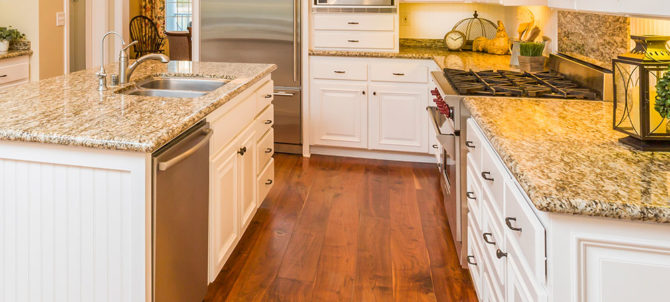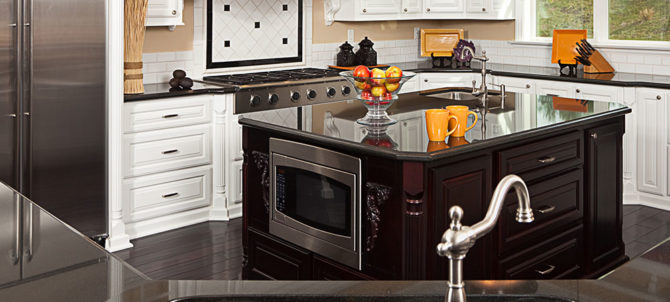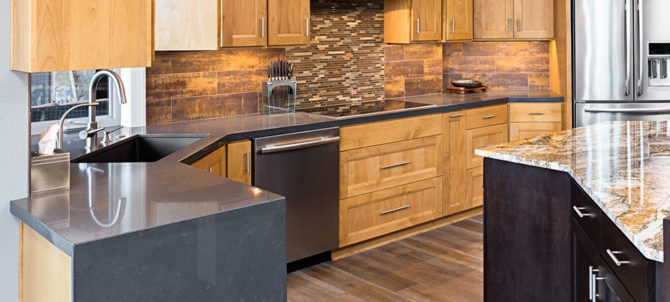
People install marble countertops to add timeless appeal to their property. Marble has received high appreciation for its durability, gorgeous appearance, and ease of care. Unfortunately, like any other countertops, they get damaged.
Have you seen any scratches, cracks, or chips on your marble surfaces? Then you need to fix them. To help you out, here is how to go about it:
Fixing cracks, fissures, and holes
Cracks, fissures, and/or holes in marble countertops can occur for a variety of reasons. Exposure to severe temperatures, as well as dropping heavy objects on marble surfaces, can cause cracking or chipping. Inconsistencies in the marble itself can also occasionally cause fissures to form, which can eventually lead to cracks.
Cracks or chips can worsen over time, so you should have them repaired as soon as you see them.
You should note that if left untreated, the damage to the countertop may worsen to the point that you have to replace the entire piece. In extreme circumstances, marble fractures can be dangerous since a portion of the counter can break and injure someone.
For hair-like cracks, simply apply a small amount of epoxy sealer and smooth it with a putty knife. Then, using a clean, moist cloth, wipe any excess epoxy sealant from the marble.
When your marble worktop has a deep chip, it is slightly more difficult to repair the marble since you must design a filler that resembles the original marble pattern.
It’s generally difficult to handle this as a DIY project, so you need to be proficient in stonework to engage a professional marble repair specialist to restore deep chips so that the finished product matches the rest of your marble countertop.
Getting rid of stains and visible burns
Marble is also stainable, so if you have marble countertops, be cautious not to spill acidic or oily meals, as they can discolor the marble over time. If you do spill, wipe it up soon.
Unlike granite counters, marble can scorch when exposed to high temperatures—so keep hot pots and pans away from marble surfaces to avoid damage.
If any discoloration or burn marks appear, expert marble repair will be required to return the countertop to its original state.
To remove stains from the surface of your marble worktop, use tin oxide polishing powder. With minimal effort, the stains should disappear.
Removing scratches and normal wear and tear
Despite its versatility and durability, marble remains a somewhat soft stone that can be scraped and damaged by sharp items.
Over time, with frequent use (as in busy kitchens), you may notice evidence of wear and tear, such as light scratches and scuff marks. If these marks do not disappear after washing or buffing with a soft cloth, the surface likely needs to be repaired.
To cure scratches on marble surfaces, use a tin oxide substance, often known as grade polishing powder. Tin oxide is extremely effective at repairing scratches and stains on marble surfaces.
Simply apply the tin oxide powder to your scratched marble surface and use a piece of lint-free fabric to gently massage the powder in a circular motion until the scratch or stain disappears.
Getting rid of dullness from your surfaces
Marble finishes lose their lustre over time due to routine wear. You may notice that areas of your countertop that you frequently use appear duller than the rest of the surface.
When this occurs, the best approach to restore the countertop’s beauty and consistency is to have specialists perform the repairs.
Fixing broken pieces
Sometimes, marble bits break off your countertop. If this is the situation in your home, the best option is to use marble adhesive. Apply the adhesive around the hole where the piece(s) of marble has broken off and the detached piece(s).
Next, reposition the marble pieces and press down hard until they remain in place alone. Then, allow them to dry completely for 24 hours.
Once the marble adhesive has dried, use a moist cloth or sponge to remove any excess adhesive. The job is done.
How do you protect your marble from damage?
Prevention is always better than cure, so instead of spending time fixing your marble, you can protect it from damage. How do you go about it?
Treat it like wood
A good approach is to treat your marble like a high-quality wood finish. Use coasters and cutting boards to avoid drying wet dishes or glasses directly on the marble surface.
The only way to avoid marble etching and staining is to avoid contact with the chemicals and cleansers that cause these issues.
Unfortunately, accidents, spills, and catastrophes are unavoidable in every kitchen.
If you spill something, clean it up promptly. Do not let it sit on the stone.
If you discover any markings after washing the countertop, the marble has likely been stained or etched.
Seal your marble
Marble is a soft and porous stone; therefore, you should keep it protected to prevent scratches and stains.
You should drop several drops of water on the countertop to test the surface. Return to the spot in five to ten minutes. If the drips remain, the surface is still well sealed; if the drops have dissolved, it is time to reseal.
When your marble requires resealing, you can do it yourself (DIY). You only need to ensure that you use premium silicone sealer.
Besides sealing the surfaces by yourself, it’s also wise to have your marble countertops professionally sealed every 3-5 years, depending on how much wear and tear they have.
If you see a lot of stains and etches, it’s time to contact the professionals.
Clean the surfaces regularly.
You should regularly clean your surfaces. When doing it, avoid using acidic or abrasive cleansers, which might cause surface damage. Instead, use pH-neutral cleaners, such as gentle dish soap or cleaners made specifically for marble.
The beauty is that you don’t need any special skills to clean your marble kitchen countertops Durham. You also don’t need to hire a professional to help you out. You can easily clean your home by yourself.



